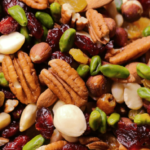Understanding the Impact of Laundry Detergents on Health and Safety
Laundry detergents and pods are essential household items, but many consumers overlook the potential hazards they pose. In this comprehensive guide, we delve into the world of domestic laundry detergents, shedding light on both their benefits and the possible harmful effects associated with their use.
The Dangers to Your Family’s Health
Prolonged use of laundry detergents can pose several risks to your health. Some potential dangers include:
1. Skin irritation: Many laundry detergents contain chemicals and fragrances that can irritate sensitive skin, leading to conditions like eczema or contact dermatitis. Prolonged exposure to these irritants can worsen skin conditions and cause discomfort.
2. Respiratory issues: The chemicals and fragrances in laundry detergents can also irritate the respiratory system, causing symptoms like coughing, sneezing, wheezing, and shortness of breath. Individuals with asthma or other respiratory conditions may be particularly susceptible to these effects.
3. Allergic reactions: Some people may develop allergies to specific ingredients in laundry detergents, leading to symptoms like itching, hives, and rashes. Continued exposure to these allergens can exacerbate allergic reactions and cause ongoing discomfort.
4. Hormone disruption: Some chemicals in laundry detergents, such as phthalates and parabens, have been linked to hormone disruption and reproductive issues. Prolonged exposure to these chemicals may affect hormone levels and potentially lead to long-term health concerns.
5. Environmental impact: Many laundry detergents contain ingredients that are harmful to the environment, such as phosphates and surfactants. These chemicals can pollute waterways, harm aquatic life, and contribute to water pollution. By choosing eco-friendly laundry detergents, you can reduce your environmental impact and protect your health.
To minimize the risks associated with laundry detergents, consider using fragrance-free and hypoallergenic products, washing clothes in cold water, and avoiding excessive use of detergent. If you experience persistent skin irritation or respiratory symptoms, consult a healthcare provider for guidance on managing your exposure to potentially harmful chemicals.
The Dangers of Accidental Ingestion by Children
One of the most concerning aspects of laundry pods is their resemblance to candy, which can entice young children to ingest them. According to statistics, thousands of children are admitted to hospitals each year due to accidental ingestion of laundry pods. Ingesting these pods can lead to serious health complications, including respiratory distress, vomiting, and even coma.
Parents and caregivers must store laundry detergents and pods in childproof containers and keep them out of reach of young children to prevent accidents.
Safer Alternatives to Chemically Laden Detergents
In light of the potential risks associated with traditional laundry detergents, many consumers are turning to safer, more environmentally friendly alternatives. Here are some non-harmful options to consider:
1. Plant-Based Laundry Detergents
Plant-based laundry detergents are environmentally friendly alternatives to traditional laundry detergents that are made from petroleum-based chemicals. These detergents are made from natural and renewable plant-based ingredients, such as oils, extracts, and enzymes.
There are several benefits to using plant-based laundry detergents:
1. Gentle on the skin: Plant-based detergents are free from harsh chemicals and synthetic fragrances, making them ideal for those with sensitive skin or allergies.
2. Eco-friendly: Plant-based detergents are biodegradable and do not contain harmful chemicals that can pollute water sources or harm aquatic life.
3. Sustainable: Plant-based ingredients are renewable and can be grown without the use of harmful pesticides or fertilizers, making them a more sustainable option compared to traditional detergents.
4. Effective cleaning power: Despite being gentle on the environment and skin, plant-based detergents are still effective at removing dirt, stains, and odours from clothing.
5. Cruelty-free: Many plant-based laundry detergents are also cruelty-free, meaning they are not tested on animals. Overall, plant-based laundry detergents offer a more sustainable and environmentally friendly option for cleaning your clothes while still providing effective cleaning power.

2. Eco-Friendly Fabric Softeners
Chemicals commonly used in fabric softeners to create a fresh scent and softer clothing include:
1. Quaternary ammonium compounds (quats): These chemicals help to reduce static electricity and soften fabrics.
2. Fragrance: Synthetic fragrances are often added to fabric softeners to provide a pleasant scent.
3. Silicones: Silicone-based compounds are used to create a smooth and soft feel on fabrics.
While these chemicals are generally considered safe for use in fabric softeners, some people may prefer to use non-harmful alternatives. Some alternatives to traditional fabric softeners include:
1. Vinegar: Adding a cup of white vinegar to the rinse cycle can help to soften clothes and eliminate odours.
2. Baking soda: Baking soda can also help to soften fabrics and reduce static electricity.
3. Wool dryer balls: These reusable wool balls can be added to the dryer to help soften clothes and reduce drying time.
4. Essential oils: Adding a few drops of essential oils, such as lavender or eucalyptus, to a damp washcloth and tossing it in the dryer can provide a natural scent to clothes.
Overall, it is important to read labels carefully and choose fabric softeners that are free of harmful chemicals if you prefer a more natural option.
3. DIY Laundry Detergent Recipes
For those who prefer complete control over the ingredients in their laundry detergent, DIY recipes offer a customizable and cost-effective solution. Common ingredients in DIY laundry detergents include washing soda, borax, and essential oils for fragrance.
4. Laundry Sheets
Have you heard about laundry sheets? They are excellent because they are eco-friendly, biodegradable, and safe for kids. you really should try them out. Trust me, you won’t go back to those dreadful washing powders, liquids and pods ever again! CLICK HERE to try them today.
Conclusion
While domestic laundry detergents and pods play a crucial role in maintaining clean and fresh-smelling clothes, it’s essential to be mindful of their potential risks to health and safety. By understanding the chemical composition of detergents and exploring safer alternatives, consumers can make informed choices that promote both cleanliness and well-being.
In conclusion, prioritizing safer alternatives and proper storage practices can help mitigate the risks associated with traditional laundry detergents, ensuring a healthier environment for both individuals and the planet.
Contact us if you want assistance with this article





















